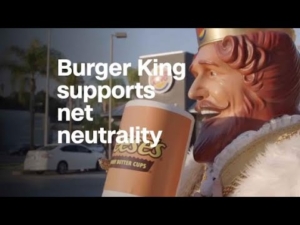Policymaking in the Year of the Hashtags
Here’s What You Need To Know
In CQ’s 2018 Legislative Preview released this week, Delve CEO Jeff Berkowitz was quoted as calling the first twelve months of the Trump era “the year of the hashtags.” From #WomensMarch to #NoBanNoWall to #FakeNews, political organizing that once took several days is now realized in a matter of hours. With the activism that has been impacting corporate interests now impacting politics in the Trump era, the major policy issues facing Congress will be subject to all of the noise playing out in the public arena.
Here are Delve’s three key “hashtag activist” dynamics driving the forces that will impact policymaking in 2018:
- #Resistance: Grassroots activists on the Left are flush with cash and have metastasized to resist the Trump Administration and any policies associated with it. Democratic politicians have every incentive to appease their base for political reasons and for personal ambition, should they desire to run for higher office – or avoid a primary from the left. The President has already shown his willingness to make a deal with “Chuck and Nancy,” but with issues that draw bipartisan support like infrastructure and resolving the status of Dreamers approaching, the lack of bipartisan legislative accomplishment may ultimately be due to Democratic lawmakers who find it politically-untenable to make a deal, regardless of the policy. This would explain Republican leaders’ focus on bipartisanship coming out of their weekend retreat with the President at Camp David.
- #MeToo: Sexual harassment allegations have claimed a number of elected officials so far, with more to come. This will impact the party breakdown in Congress and may change the outcome of key policy battles. As Berkowitz told CQ, “how do you do a whip count if you don’t even know who’s going to still be in Congress?” Adding to this uncertainty is the likelihood of more allegations focusing on Members or their staff, as well as the potential for some unsubstantiated attacks targeting elected officials to be weaponized as this phenomenon continues.
- #FakeNews: People are choosing their own news with their own set of facts, and instead of seeking the truth, it is instead in vogue to “speak your truth.” It is difficult to work together, find common ground, and get things done if you don’t even agree on what is reality. From the partisan-tinged Russia investigation, where media misstepshave lent credence to the President’s claim that the investigation is #FakeNews, to Republican voters in the Alabama special election who doubted the allegations made against Roy Moore in a deeply-sourced Washington Post article, the lack of trust in and credibility of the media means everyone now has their partisan jersey on to the detriment of the truth.
All indications are that 2018 will be tougher, legislatively and otherwise, than last year. The above dynamics provide a lens through which the team at Delve will be conducting our analysis this election year, because being prepared for this challenging landscape will allow companies to weather the uncertainty and make the most of the opportunities that appear.
Subscribe to Receive Insights
"*" indicates required fields
News You Can Use
GETTING THE STORY STRAIGHT
Seattle’s new tax on sugary drinks has shocked some shoppers, but the spin – or lack thereof – coming from public health advocates supporting the tax may well add some whiplash. Jim Krieger, who is the executive director of Health Food America and serves on the Seattle Healthy Kids Coalition committee, said he was “very excited” to see the impact the tax would have on shoppers’ behavior, which he expects to result in a decrease in consumption of sugary drinks that have the 1.75 cents tax per ounce.
However, when Krieger was confronted by a local reporter asking if the tax would hurt Seattle businesses by driving shoppers to purchase their sugary drinks in neighboring cities, he contradicted his theory that taxes influence buying decisions, telling the reporter that “people realize it’s not worth [their] while” to shop elsewhere. The tax is either big enough to elicit change, which Krieger earlier suggested and which may then hurt local businesses by causing shoppers to go elsewhere, or it is not – meaning that sugary drink tax advocates need to get their story straight.
“ERISA-ING” TIDE LIFTS ALL BOATS
A proposed rulemaking change by Labor Secretary Alex Acosta would change the way small businesses and sole proprietors can get health insurance coverage, allowing them to join or create association health insurance plans based on factors such as geographical area, industry, trade, or profession. While large employers and union-sponsored plans may be exempt from ObamaCare coverage mandates, millions of small business workers and owners are uninsured or struggling to afford their insurance because the ObamaCare exchanges pass on these compliance costs to the consumer.
The Department of Labor’s action to more broadly define the “commonality-of-interest requirements” for association health plans under the Employee Retirement Income Security Act (ERISA) would allow these individuals to band together to create flexible coverage options appealing to their needs, suggesting that a health insurance solution for the 21st century’s expanding “gig economy” can stem from less government interference rather than more government promises.
NEVERTHELESS, CALIFORNIA PERSISTED
With the state and local sales tax deduction now capped at $10,000, high-tax, high-cost states like California and New York are exploring workarounds to evade it. California’s Democratic legislative leaders unveiled a bill to allow residents to make a charitable donation to the state’s California Excellence Fund in exchange for a state tax credit. Charitable donations are not capped under the federal tax legislation signed into law at the end of last year, and already the proposal has been labeled as a political gimmick unlikely to escape scrutiny by the federal government.
The evasion strategy could backfire, though, because federal tax law requires charitable donors to reduce the deductible amount of their donation by the value they receive, so with donors still receiving the same government services of significant value, the Internal Revenue Service could argue it is not a charitable deduction at all. Should state governments want to resist the burden of high-taxes on their residents, Tax Foundation analyst Jared Walczak instead suggests “states should consider revisiting their tax rates rather than devising increasingly convoluted and legally suspect workarounds.”
EXPOSING THE CAMPAIGN FINANCE DEBATE
Democratic efforts to campaign against “dark money” in politics just aren’t taking off, and a recent policy analysis by Wiley Rein’s Eric Wang of the Supreme Court’s jurisprudence regarding campaign finance disclosure laws may shed some light on why that is. Democratic candidates have taken full advantage of the campaign finance laws as they currently exist, all while asking voters to support their efforts to reform them.
Yet, although Supreme Court rulings have cited an “informational interest” for voters in knowing from where political donations come, few voters – the Delve research bullpen notwithstanding – actually reference this information or pay attention to attacks against large political donors, indicating that the campaign finance debate in 2018 is more ineffective political pandering than actual policy issue.



